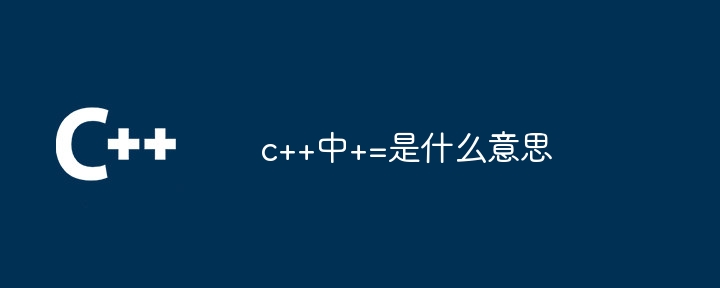Home >Backend Development >C++ >What does += mean in c++
What does += mean in c++
- 下次还敢Original
- 2024-04-26 20:27:151274browse
The = operator in C is a compound assignment operator, used to add a value to an existing variable. The syntax is variable = expression, and its equivalent assignment form is variable = variable expression. This operator simplifies code, avoids errors, and ensures type safety, but cannot be used with pointer variables.

= operator in C
In the C programming language, the = operator is a compound assignment operation symbol, used to add a value to an existing variable. The syntax is as follows:
<code>variable += expression;</code>
Among them:
-
variableis the variable to be assigned a value. -
expressionis the expression to be added to the variable.
For example:
<code class="cpp">int x = 10; x += 5; // 将 5 加到 x</code>
After executing this code, the value of x becomes 15.
The equivalent assignment form of the = operator is:
<code class="cpp">variable = variable + expression;</code>
But the = operator is simpler and more readable.
Advantages and limitations
- Simplify the code: = operator can simplify the code and avoid writing lengthy assignment statements.
- Avoid errors: The = operator prevents accidental overwriting of variable values because it operates by referencing the variable.
- Type safety: = operator only allows values of the same type to be added to variables, thus ensuring type safety.
Limitations:
- The = operator cannot be used with pointer variables because they store addresses, not values.
Conclusion
The = operator is a convenient and effective compound assignment operator, used to add a value to an existing variable. It simplifies code, avoids errors, and ensures type safety.
The above is the detailed content of What does += mean in c++. For more information, please follow other related articles on the PHP Chinese website!

